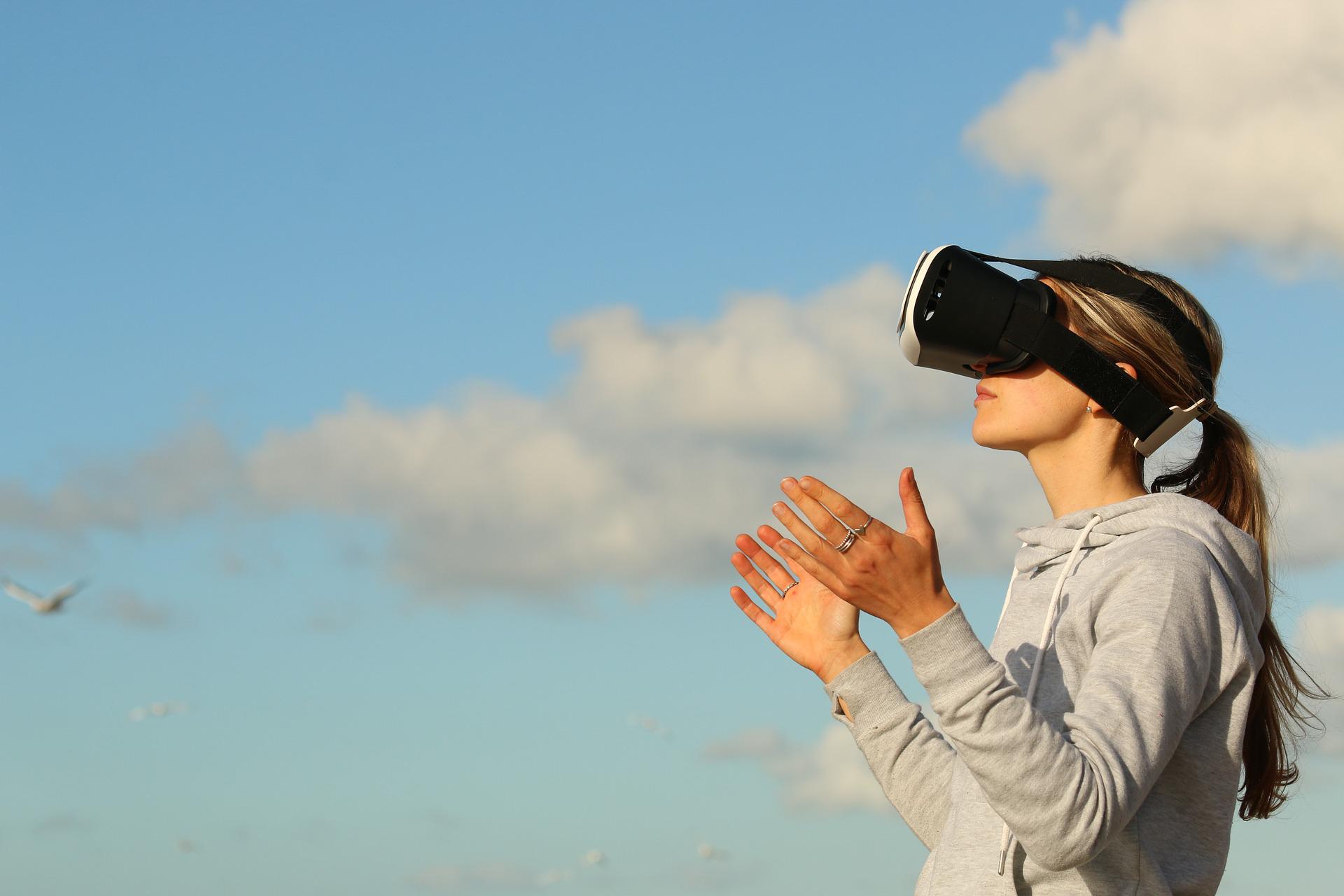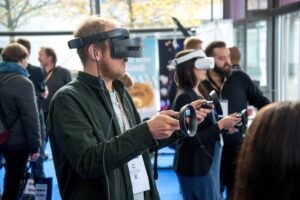Virtual reality has been around for many years, but it did not really develop that much until recently. Thanks to different advances in technology, including VR, the quality of life for an average person is expected to increase by a lot.
Besides, it is not just individual people that benefit greatly from virtual reality. Certain industries are expected to grow as well because they can utilize VR. What are those industries? You can find out below.
Gaming
Let’s start with video games. As far as entertainment goes, video games and VR are often associated together, particularly when talking about the latter.
You can even get a VR headset for mac—a computer brand one does not think of when they talk about video games.
Putting on a VR helm and transporting yourself to a virtual world is one of those experiences that more people need to try.
It is not just traditional game worlds in fantasy settings that VR enthusiasts can enjoy. Now virtual reality chats are also quite popular. You can create an avatar and enjoy spending time with friends or even strangers that you meet in virtual worlds.
Healthcare
Healthcare is arguably the best example of an industry that is excited to make more use of VR.
Those in training need proper experience to perform surgeries, but it is not like you can risk trainees operating on real patients when a person’s life is on the line, right?
Virtual reality is the closest thing we can get to recreating a situation representing real-life circumstances, and if it benefits the healthcare workers, then both the public and private healthcare sectors will hopefully invest money in it.
Automotive
Self-driving cars are more of an artificial intelligence thing, so do not confuse AI with virtual reality.
What VR offers are the opportunities to design and present different car models without needing to waste resources on creating physical models.
It helps the environment and scores manufacturers extra points. Safety trials for vehicles are also something that car manufacturers can test via virtual reality, creating virtual scenarios instead of bothering with actual tests.
Education
As previously mentioned, healthcare workers can utilize virtual reality to recreate real-life scenarios to train and improve.
Well, the education industry is on a similar boat. These days, the average span of students is not that high, and keeping them engaged is one of the biggest challenges schools have to overcome. And it is not just younger children. University students can be just as disinterested as anyone else.
By making use of virtual reality, schools can enhance the learning experience and make even the most disinterested students change their stance.
Take astronomy, for instance. Hearing boring facts and numbers is one thing, but if you put on a VR headset and transport yourself into a space-like environment, it is different.
Of course, the problem with this particular idea is that investing in VR is not something most schools can do, though that applies to other industries as well.
Tourism
Tourism is another example of an industry that benefits from virtual reality. If a tour is interesting, adding a bit of a VR touch to it can enhance the overall experience.
Imagine walking around a historical site that has been withered down by time, and there is very little of it left. There is only so much that a guide can do to get tourists immersed.
Again, that changes once you have a VR headset on. Recreating identical environments is pretty much impossible, but available sources should help replicate at least the most important aspects and transfer history enthusiasts to a different time.
Ecommerce
Shopping online has many benefits, but if there is one thing that prevents more people from trying it, it would have to be the fact that you cannot try the goods in person.
Clothes and shoes are perhaps the best examples of this issue. You are likely to struggle with sizes despite having the measuring table and other relevant information because the things mentioned in product descriptions do not necessarily represent reality.
Well, it just so happens that with the help of VR, shoppers can visit stores “in person” and try the products before spending money.
The VR trend is quite notable in the e-commerce industry, and the fact that some of the biggest brands are investing in it speaks volumes about the value virtual reality offers.
Architecture
Architecture is the last industry on the list. This one should be pretty obvious. Even smaller projects require time and effort to pull off, and if you do not have the tools necessary, it can be hard.
Virtual reality offers an alternative approach that you can use while designing structures. You do not have to commit before the potential prospect is presented in a VR form and meets the necessary criteria. Once the checklist is complete, it is easier to proceed to the next step, which is actually building the thing you created in virtual reality.
Follow us on LinkedIn
Read other Articles





